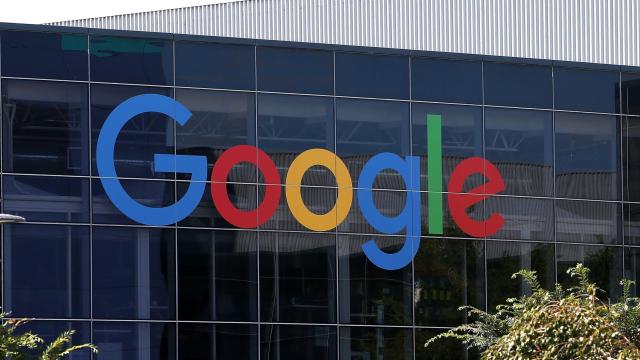Google was fined a hefty 220 million euros (or roughly $344 million) on Monday after France’s competition authority found the company abusing its outsized role in the world of digital advertising.
These fines come following a massive investigation from France’s Competition Authority (the Autorité de la concurrence) after multiple media companies from the EU and elsewhere filed a complaint against the tech giant back in 2019. Two years later, it turns out their allegations had some weight. On top of being legally obligated to pay out a multi-million dollar settlement, Google agreed to tweak its ad-serving technology that France — not to mention other authorities stateside — have claimed favours its own products.
In a statement posted on Monday, Autorité president Isabelle de Silva said that France’s decision was the first in the world “to look into complex algorithmic processes through which online display advertising works.”
“[Google’s] practices have penalised competition in the emerging online advertising market, and have enabled Google not only to preserve but also to increase its dominant position,” de Silva added. “This sanction and these commitments will make it possible to re-establish a level playing field for all players, and the ability of publishers to make the most of their advertising space.”
One of the major allegations the authority was charged with investigating was that Google’s advertising server — which is used by most major sites to auction off their ad space — gave Google’s online auction house an advantage against other auction operators.
In order to give themselves the most bang for their buck, most web publishers — like the French newspaper Le Figaro, who was one of the names behind the initial 2019 complaint — will rely on a single server at any given time. The main job of this server is to try to plug that publisher’s ad space into multiple auctions, so the maximum number of advertisers can put bids down on those spaces.
According to the Autorité’s investigation, Google used “various methods” to ensure that its own ad auctions would usually win on the company’s advertising server. Because of the way money flows through the digital ad ecosystem, rigging the auction process didn’t only ensure that more money flowed Google’s way, but it also stymied funds from competing auctions that might have paid those publishers a greater amount. In other words, this meant more money for Google, and way less money for sites that use Google to advertise.
Google didn’t refute the charges. “While we believe we offer valuable services and compete on the merits, we are committed to working proactively with regulators everywhere to make improvements to our products,” said Google France’s legal director, Maria Gomri, in a blog post on Monday.
“That’s why, as part of an overall resolution of the FCA’s investigation, we have agreed on a set of commitments to make it easier for publishers to make use of data and use our tools with other ad technologies,” she added, noting that the company will be “testing and developing” these changes over the coming months before rolling them out on a broader basis.
One of the biggest updates that Google’s promising is to not use data from other, competing auction houses in order to optimise its own bids “in a way that other SSPs can’t reproduce.” The company is also promising to now give its publisher partners “at least three months’ notice” to any major platform changes the Google’s planning on making — unless those changes “are related to security or privacy protections.”
Some of the other product changes planned by Google are ones “that improve interoperability,” between its own auctions and third-party servers. The company also promised “to create a solution that ensures that all buyers that a publisher works with,” will get equal amounts of data, so they can get the best bang for their buck — and publishers, in turn, can get a fair amount for selling off their ad space.
Per Reuters, Google will be introducing these updates in the first quarter of next year. Google’s blog notes that “some” of these changes are going to be introduced globally — Gizmodo has reached out for clarification on which changes these are.
Like just about every corporate blog from the company, the blog is heavy on PR-speak and light on specifics. Google doesn’t explain, for example, why some of these transparency boosts can’t be rolled out in multiple markets. It also didn’t explain how Google would be sharing data with all buyers to level the playing field when Google’s own blog admits that sharing this data isn’t “technically possible” most of the time, simply because of the way most publishers’ adtech pipes operate. And of course, there’s no mention in the blog about how these changes will mesh with Google’s plans to kill off third party cookies, which are also facing their own antitrust probes in the EU.
This isn’t the first time that Google’s ad-brokering business — which raked in $US183 ($235) billion for the company last year — has been a source of antitrust-adjacent headaches for the company. A coalition of lawmakers spearheaded by Texas’s Ken Paxton sued the company back in December over allegations that the company monopolized the digital ad market. That’s on top of the other antitrust investigations facing the company right now, both from the DOJ and from dozens of other states. Until 2022, we just need to sit and wait to see if these changes actually boost up competition in the digital ad space, or whether Google will keep on being Google.
